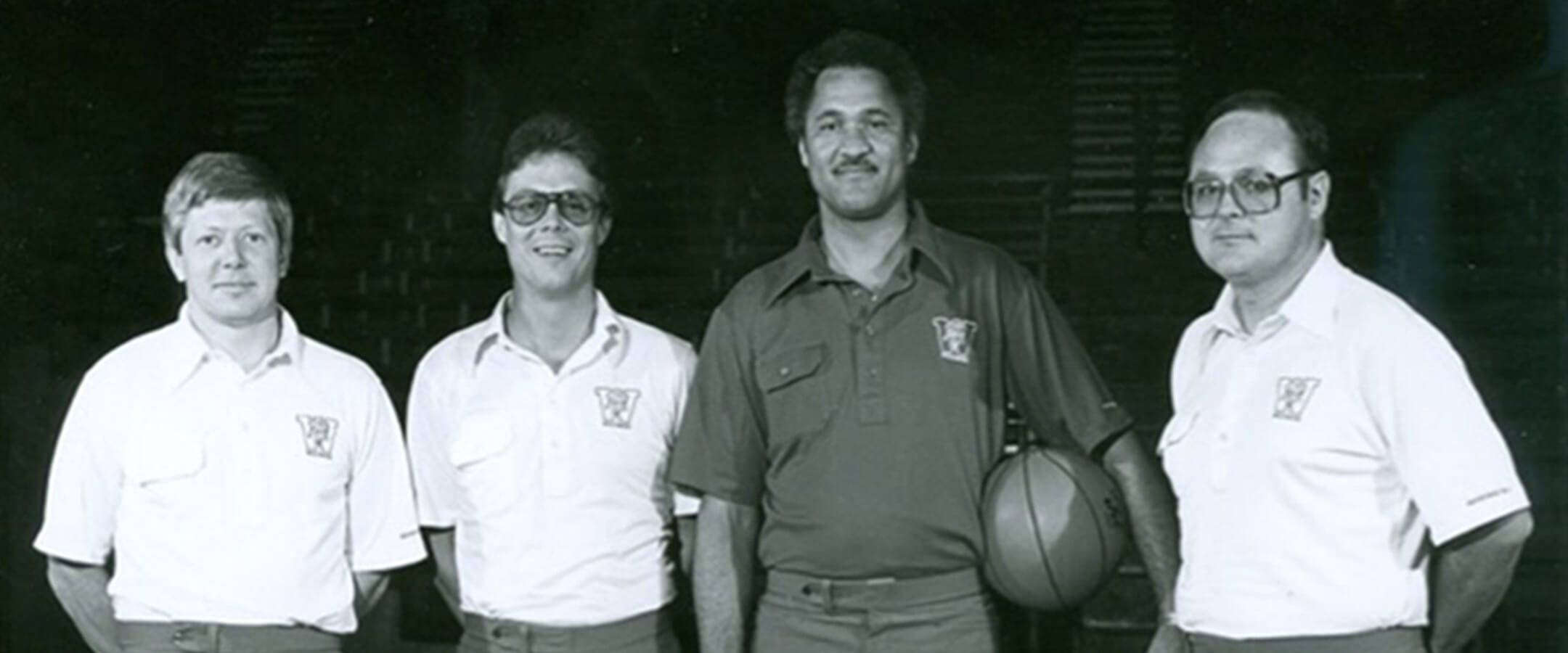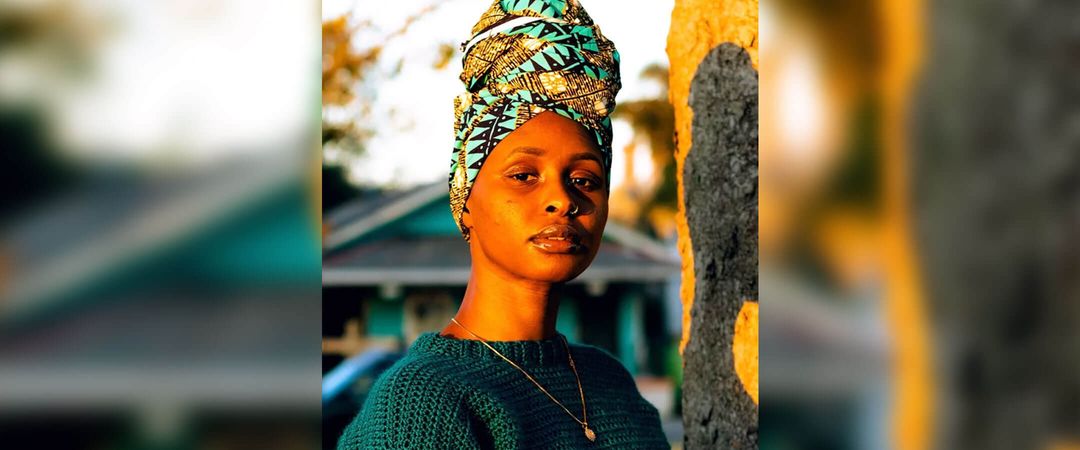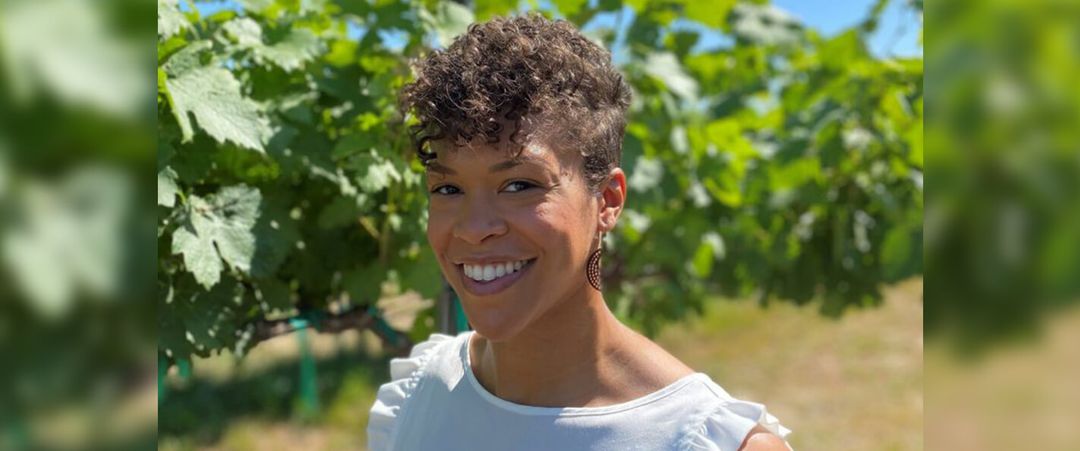Recognized for its hard-fought wins and passionate fans, UW–Madison has a rich athletic history spanning more than a century. Even before the successful UW Department of Athletics that we know (and love) today, there were pivotal moments, trailblazing student-athletes and coaches, and historic programs that laid the groundwork for future success. From integrating sports to breaking records, the University of Wisconsin has celebrated numerous “firsts” that have shaped its athletic legacy.
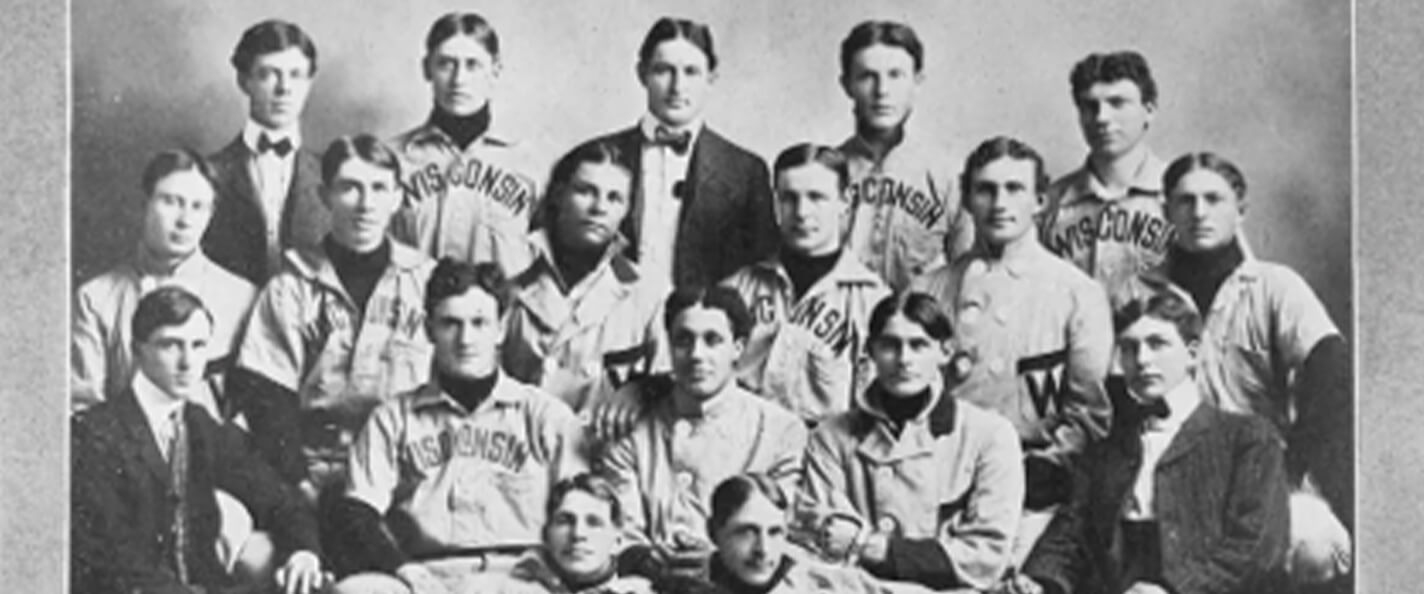
In 1870, baseball became UW–Madison’s first intercollegiate sport, paving the way for future athletic achievements. In 1900, it also became the university’s first integrated sport when Julian Ware x1903 and Adelbert Matthews x1903 joined the team. Ware and Matthews were the UW’s first African American intercollegiate athletes, playing a crucial role in helping Wisconsin secure its first Big Ten baseball title. Notably, Ware also made history as the first Black team captain in the Big Ten.
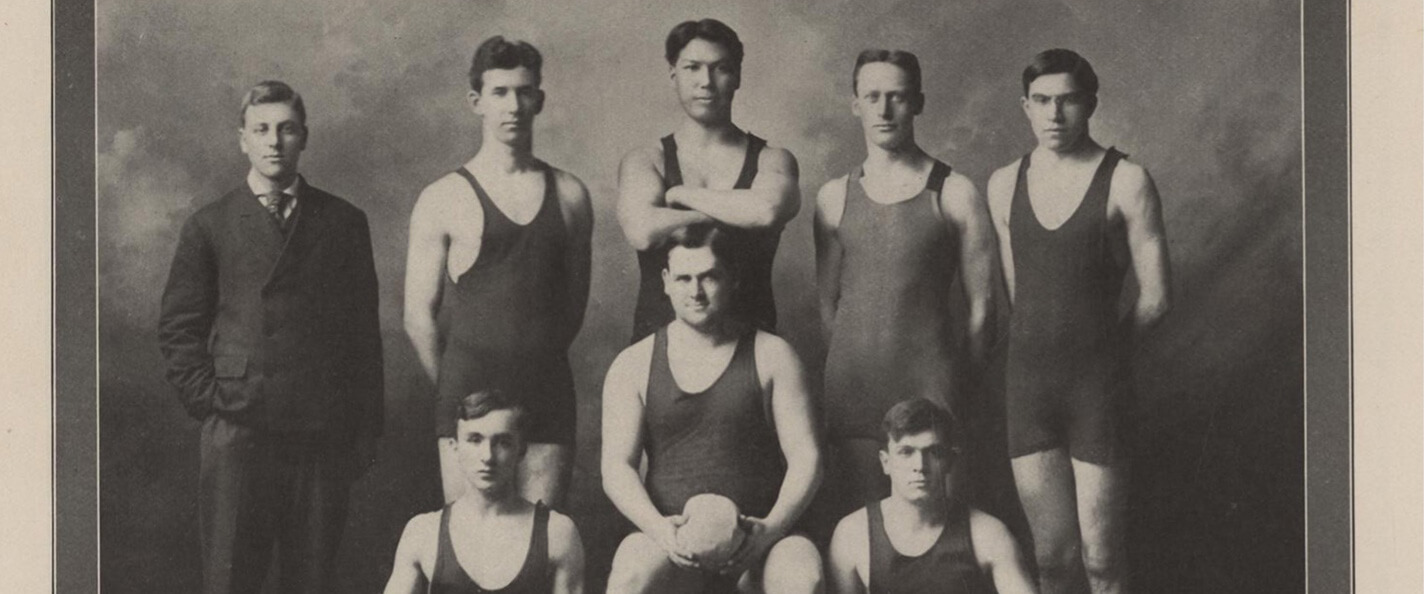
Thomas “Ted” St. Germaine LLBx1906 is one of the most prominent early Native athletes to attend the UW. Admitted to UW Law School in 1904, he excelled in sports, playing on the varsity football and water polo teams, as well as the interclass baseball team, although he left before graduating. He later earned his degree from Yale Law School and played professionally in the NFL for the Oorang Indians, where he was coached by the legendary Jim Thorpe. After his football career, St. Germaine returned to the Midwest and made history as the first Native American in Wisconsin to be admitted to the bar.
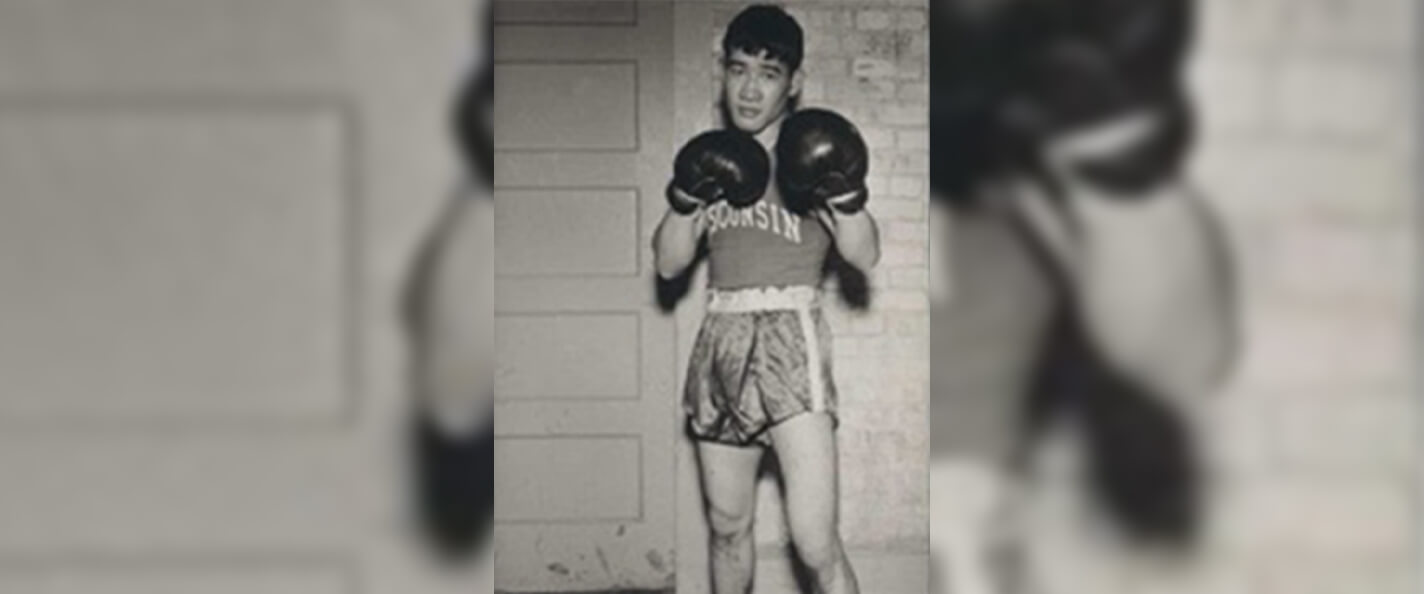
Akio Konoshima ’47 came to UW–Madison in 1944 after being detained in Japanese American incarceration camps during WWII. In 1945, he became one of the first Japanese American athletes at the UW when he earned a spot on the varsity boxing team. He held the best record on the team in his first year and was elected honorary captain in his second. After graduation, Konoshima served in the Korean War and worked as a press secretary, journalist, and author in Japan, London, and the U.S.
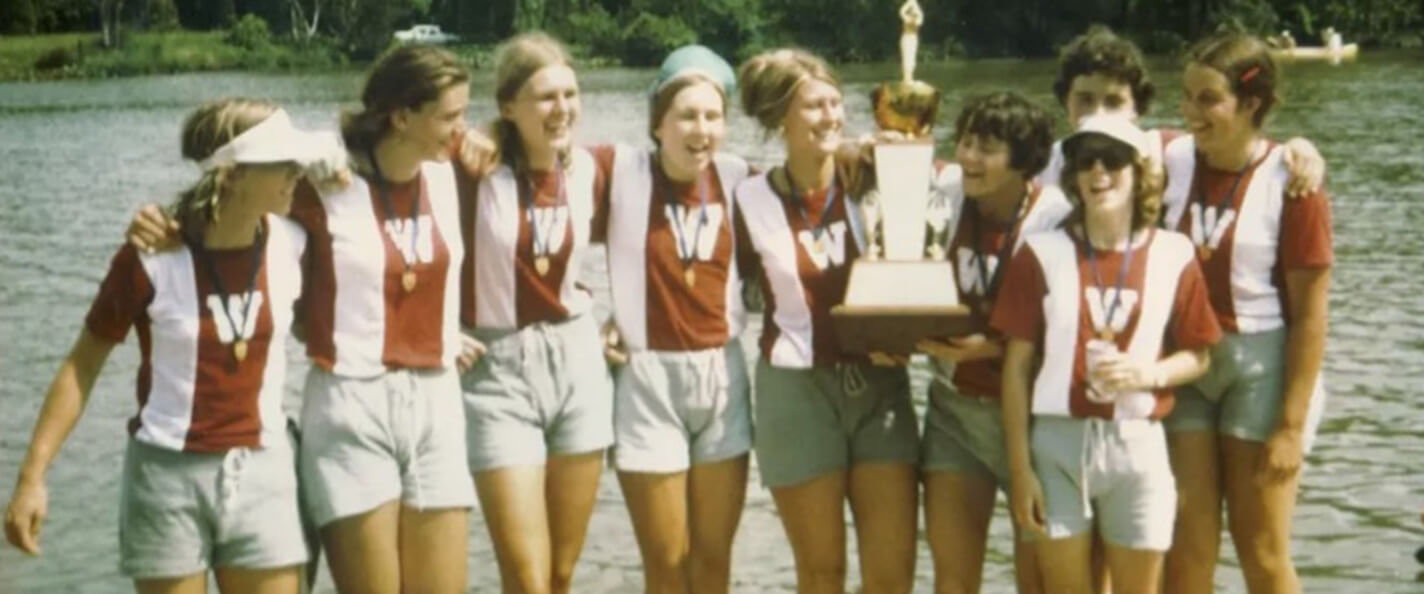
On March 1, 1974, the women’s intercollegiate athletics program was officially established at UW–Madison, with 12 women’s sports added to the program: badminton, basketball, cross country, fencing, field hockey, golf, gymnastics, rowing, swimming and diving, tennis, track and field, and volleyball. In a remarkable debut season, the Wisconsin rowing varsity eight clinched the national championship on June 16, 1975, marking the university’s first women’s championship.
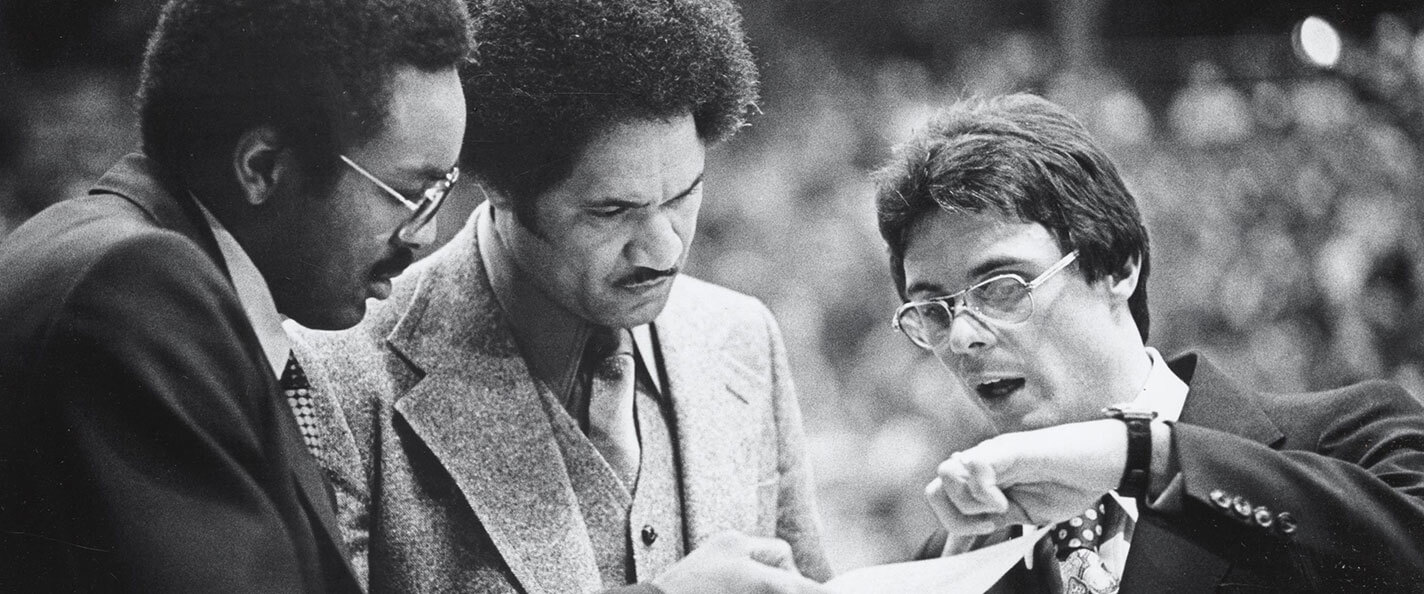
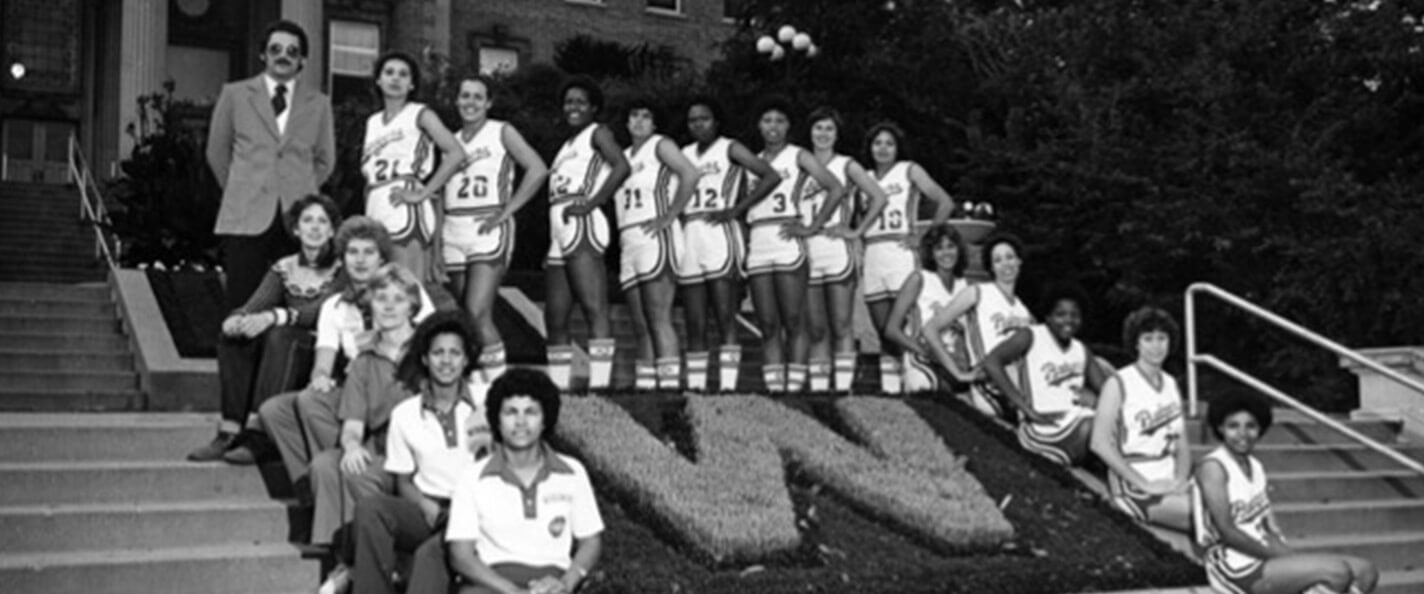
In 1976, UW–Madison made history by hiring Bill Cofield and Edwina Qualls as the first Black head coaches in the Big Ten Conference for its men’s and women’s basketball programs. Cofield coached the men’s team from 1976 to 1982, and Qualls led the women’s team from 1976 to 1986.
Before joining the UW, Cofield had coached at the College of Racine, where he gave a young assistant named Bo Ryan his first collegiate coaching opportunity. Ryan later followed Cofield to UW–Madison and became the head coach in 2001.
During her tenure, Qualls guided the Badgers to a second-place finish in the Big Ten Conference during the 1983–84 season, the highest finish in the program’s history. She also played a significant role in advancing women’s athletics at the UW after the passage of Title IX.
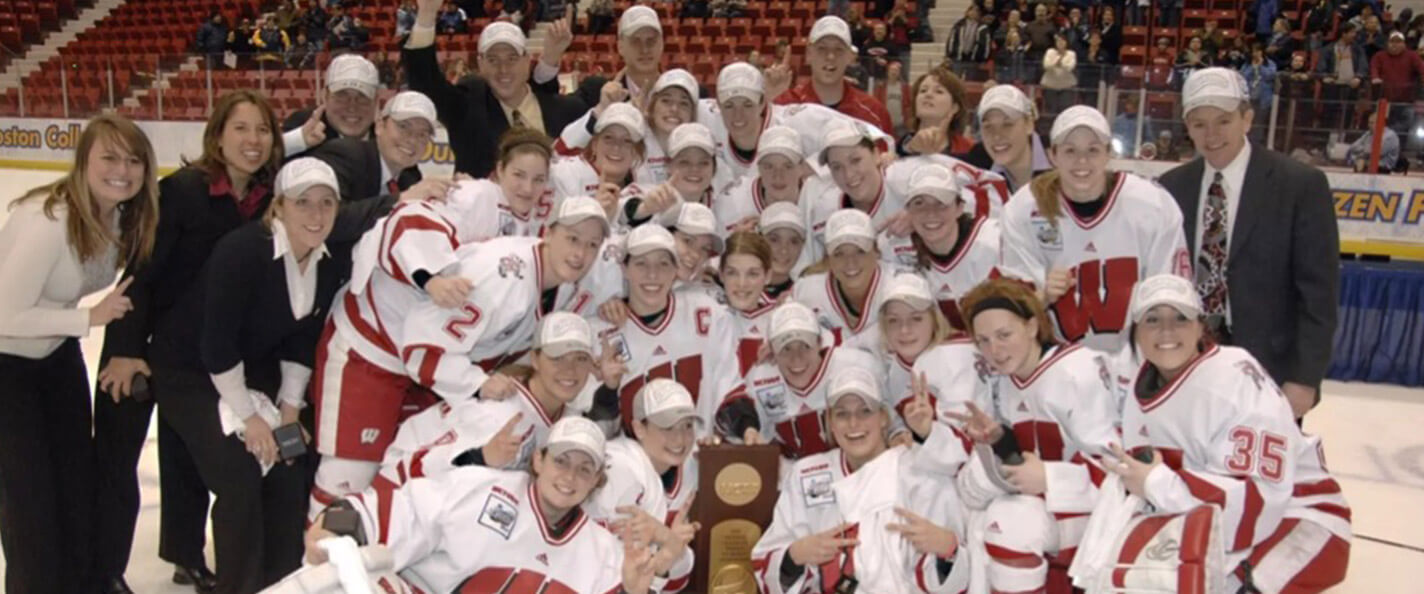
Before UW–Madison’s women’s hockey program became the winningest team in NCAA history, the Badgers had to claim their first title. On March 26, 2006, in only their seventh season, they triumphed over defending champion Minnesota with a decisive 3–0 win. The Badgers also won the NCAA championship game in 2006, 2007, 2009, 2011, 2019, 2021, and 2023. The 2023 championship win over Ohio State, lucky number seven, broke their tie with Minnesota for most national titles, making Wisconsin the most decorated women’s hockey team in the country.
